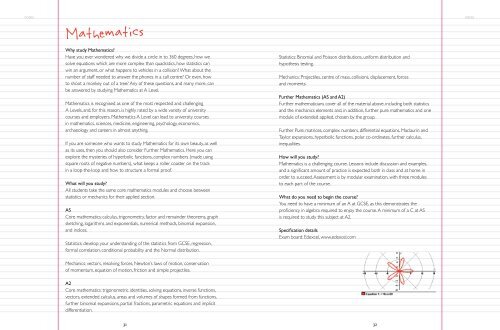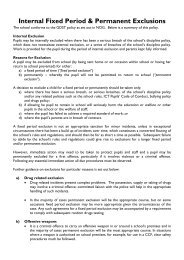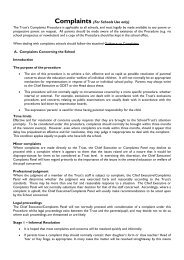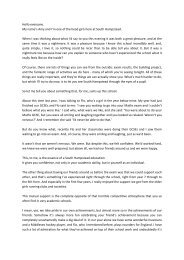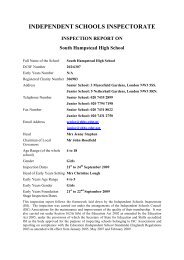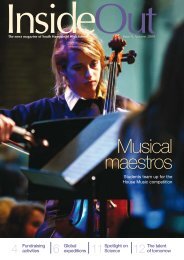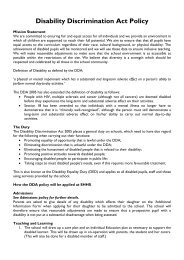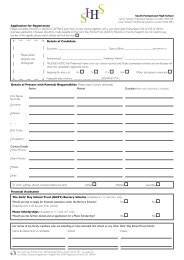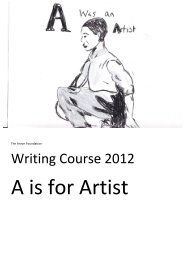SHHS Sixth Form Prospectus - South Hampstead High School
SHHS Sixth Form Prospectus - South Hampstead High School
SHHS Sixth Form Prospectus - South Hampstead High School
Create successful ePaper yourself
Turn your PDF publications into a flip-book with our unique Google optimized e-Paper software.
notes<br />
Mathematics<br />
Why study Mathematics<br />
<br />
solve equations which are more complex than quadratics, how statistics can<br />
win an argument, or what happens to vehicles in a collision What about the<br />
number of staff needed to answer the phones in a call centre Or even, how<br />
to shoot a monkey out of a tree Any of these questions, and many more, can<br />
be answered by studying Mathematics at A Level.<br />
Mathematics is recognised as one of the most respected and challenging<br />
A Levels, and, for this reason, is highly rated by a wide variety of university<br />
courses and employers. Mathematics A Level can lead to university courses<br />
in mathematics, sciences, medicine, engineering, psychology, economics,<br />
archaeology and careers in almost anything.<br />
If you are someone who wants to study Mathematics for its own beauty, as well<br />
as its uses, then you should also consider Further Mathematics. Here you can<br />
explore the mysteries of hyperbolic functions, complex numbers (made using<br />
square roots of negative numbers), what keeps a roller coaster on the track<br />
in a loop-the-loop and how to structure a formal proof.<br />
What will you study<br />
All students take the same core mathematics modules and choose between<br />
statistics or mechanics for their applied section.<br />
AS<br />
Core mathematics: calculus, trigonometry, factor and remainder theorems, graph<br />
sketching, logarithms and exponentials, numerical methods, binomial expansion,<br />
and indices.<br />
<br />
formal correlation, conditional probability and the Normal distribution.<br />
Statistics: Binomial and Poisson distributions, uniform distribution and<br />
hypothesis testing.<br />
Mechanics: Projectiles, centre of mass, collisions, displacement, forces<br />
and moments.<br />
Further Mathematics (AS and A2)<br />
Further mathematicians cover all of the material above, including both statistics<br />
and the mechanics elements and, in addition, further pure mathematics and one<br />
module of extended applied, chosen by the group.<br />
Further Pure: matrices, complex numbers, differential equations, Maclaurin and<br />
Taylor expansions, hyperbolic functions, polar co-ordinates, further calculus,<br />
inequalities.<br />
How will you study<br />
Mathematics is a challenging course. Lessons include discussion and examples,<br />
<br />
order to succeed. Assessment is by modular examination, with three modules<br />
to each part of the course.<br />
What do you need to begin the course<br />
<br />
<br />
<br />
<br />
Exam board: Edexcel, www.edexcel.com<br />
notes<br />
Mechanics: vectors, resolving forces, Newton’s laws of motion, conservation<br />
of momentum, equation of motion, friction and simple projectiles.<br />
A2<br />
Core mathematics: trigonometric identities, solving equations, inverse functions,<br />
vectors, extended calculus, areas and volumes of shapes formed from functions,<br />
further binomial expansions, partial fractions, parametric equations and implicit<br />
differentiation.<br />
31 32


